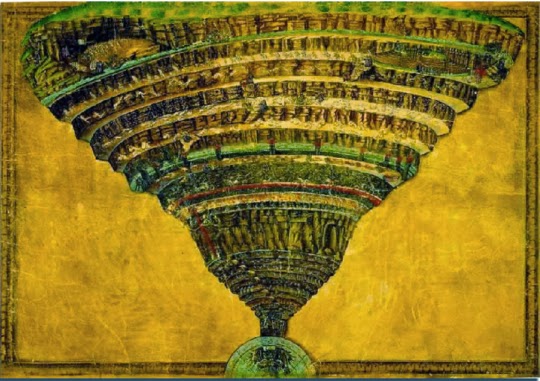Seldom do I buy books without reading a review about it. I
always take time to get myself gripped to reading a book of an author I am yet
to know. But this one is an exception.
Inferno, released in its first year, was already one of the
bestsellers. I find myself fascinated with the beguiling book cover every time
I encounter it in bookstores. I get that ‘feel’ of wanting to grasp it and just
read the thing already. Sadly, only the expensive hardbound was available so I
had no choice but to buy the cheaper ebook version.
I’ve heard of Dan Brown and his mind-boggling books over and
over, but I never considered reading any of them. My dad even warned me about
his books. Nonetheless, I was curious and nothing, not even my parents, could
stop this curiosity madness. And my expectations are of course, high, despite
the disparaging comments from some of my friends.
Let me first point to
you my unexpected discoveries. (Warning: may contain spoilers)
1. On the first part
of the book, I felt like this was a
rip-off of Dante’s inferno. With the constant use of lines coming from
Dante, I sensed Brown’s own fantasies. I could literally feel his intense
passion over Inferno as he spends the first part writing about Dante’s life and
his own hell. The unusually over use of ellipses (. . .) also brought me anew
with his writing. Up till now, I don’t get how he excessively uses it – in describing
something, in the characters’ conversation, and in the characters’ thoughts.
2. Even without
knowing, you would know Brown researched in order to put all these facts in
the book. He keeps dumping information! There
are times I don’t even understand what he’s talking about anymore. These meticulous
facts about the culture and literature of Italy is of little relevance to the
plot. As if not knowing simple, basic information would entangle the strings of
his story, as an audience, I felt his condescending tone towards us. I even
sometimes wonder if he originally planned to make this a history book.
3. The long, dry, and tedious motion of the
whole book made me want to burn my tablet. Everything happened in
just 24 hours but it seems like for a week. The characters were incessantly
amazed with every little thing about Italy as if they’ve never been there. The
way Brown described his characters made them look so great and intellectual but
he never really showed it. Their conversations were boring. These is no sense
of individuality in the voices of the characters, and this just makes it a fact
Brown didn’t really dig in to their personality.
4. Plus, there’s this
one line with one word that got me really pissed.
Need a thesaurus? Google is always there for you!
5. Not everyone is interested in Italy, and surely,
not everyone understands Italian.
Do I have to go to
google translate every time they talk in Italian? You could always put the
English translation right below the text and no one will complain, I assure
you.
6. One character
though, Vayentha, seemed to be an awesome sport. I thought she was going to
be one of the major characters that would help crack the mystery code. She
shouldn’t have had her point of view on the book if she’s not going to be there
in the end. I felt incomplete when she disappeared. Her punk look reminded me
of Lisbeth Salander from the Millenium Trilogy.
7. The Botticelli’s
map of hell left me hanging. I don’t get how it was such a big deal in the
first part when the order of sins isn’t even related to the plague. Plus, when
I searched for an image of it, I was baffled on how Langdon and Sienna saw it
on the projector because the people were so tiny!
The plot was. . . anything
but charming
The plot was good but this book would probably be better if
not for the boring tone. I must say I’m convinced with the over population of
humans. It made me rethink again about saving lives. Not that I’ve become
satanic, but I like how Brown pointed out that the only way to save humanity is
to release a plague that would make them sterile. I was also convinced in the
Malthusian Theory through the line graph he represented in Chapter 31, which
concludes that by 2050, we’d be around 50 billion. At first, I thought the
antagonist wanted to ruin the world, but he was in fact, saving the world from
over population and making us humans transform in to better ones.
However, a question in my mind remains unanswered: is there
really an antagonist? The one here, in the end, seems to be not. He seems to be
the redeemer of the world. The protagonist to me was like the mystery cracker
EVEN THOUGH he already cracked the code.








No comments:
Post a Comment